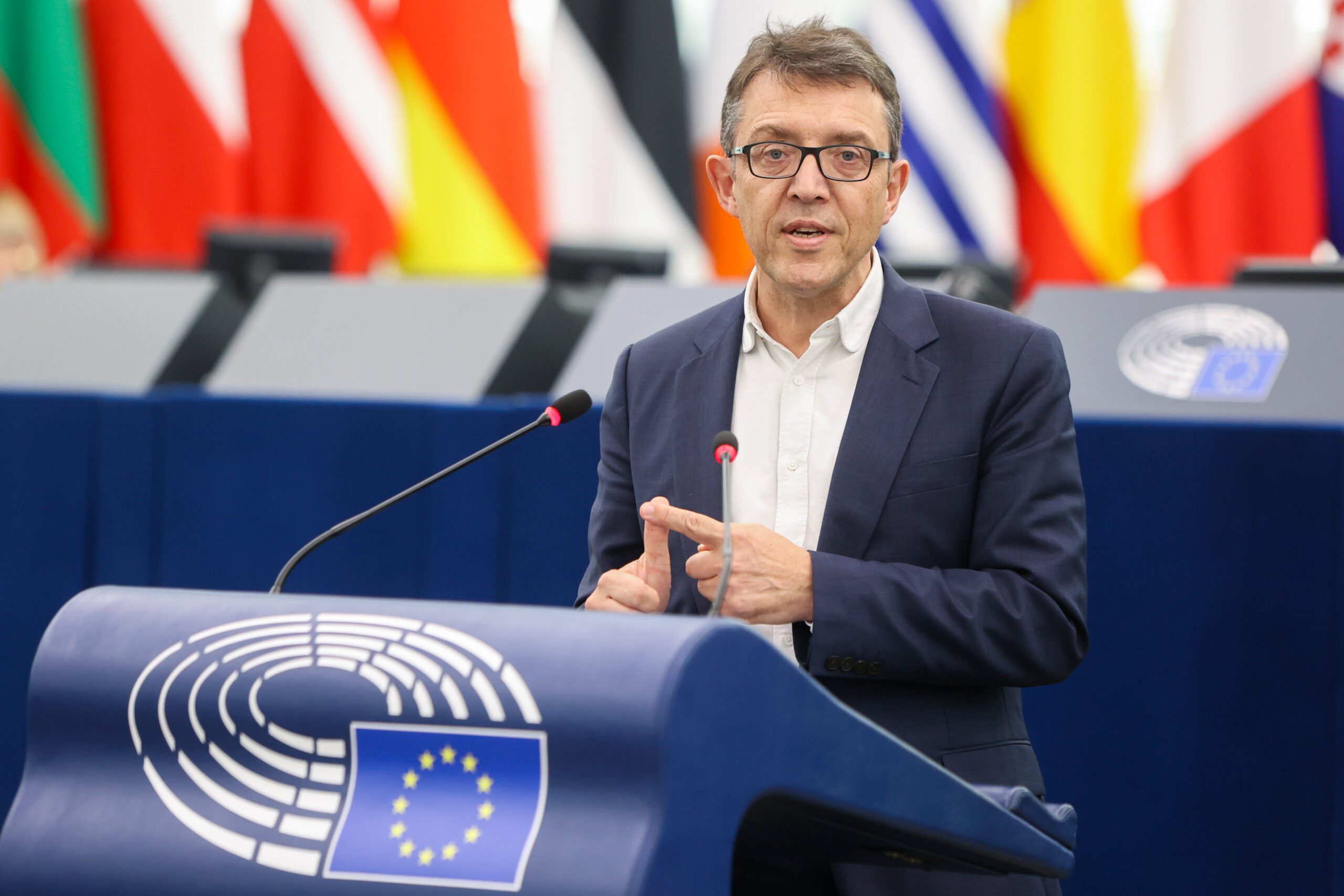Brussels, May 21, 2025
Object: Positioning Europe as a maritime power for the people and the environment by adopting an ambitious and demanding European Ocean Pact
Dear Commissioner Kadis,
We are delighted to see your commitment to an ambitious and bold European Ocean Pact. As you know, for too long, the Ocean has been overlooked in the EU agenda. This must change and you can count on our support as dedicated Members of the European Parliament for the Oceans and of SEArica (Seas, Rivers, Islands & Coastal Areas) intergroup to make it happen.
We are calling for a bold and transformative vision: a new model of governance that redefines the relationship between the Ocean and the people. To achieve this vision, we identified eight key priorities.
First, we need to keep the Ocean at the Heart of the EU Agenda.
The Ocean is central to Europe’s future and the health of our planet: we need to integrate it into EU decision-making. To achieve this, we must introduce an Ocean Policy Mainstreaming Principle across strictly relevant existing and future EU legislation. This cross-sectoral approach will ensure that ocean resilience and sustainability are fully embedded throughout European policies, driving a fair, effective and regenerative blue transition for our economy and environment in line with the Sustainable Development Goal 14.
Second, the European Ocean Pact must place people at its core.
We need to enable outermost regions, coastal, and island territories to be places with a high quality of life and empower them by creating high-quality, well-paid, and sustainable jobs people are proud of in ocean related sectors, increasing competitiveness implementing a sea basin approach, and promoting ocean literacy. We must support generational renewal in coastal communities notably by recognising the role of artisanal fisheries, increasing youth participation in shaping the blue economy, while also addressing the housing crisis in tourism-heavy coastal regions. These actions will help to foster a shared European maritime heritage and innovation culture. The resilience of cultural and linguistic minorities in outermost regions, coastal areas, and islands should also be reinforced. Special attention should be taken to outermost and ultra-peripheral regions by tailoring policies to their unique challenges and opportunities, implementing a sea basin approach for the Caribbean, Pacific, Indian Oceans, and the Atlantic Arc islands to strengthen the three pillars of sustainable development (economic, social, environmental).
Third, we must urgently restore and protect the Ocean to ensure it remains a stable planetary life supporting system.
A vibrant economy depends on a healthy ocean as much as the ocean can only remain healthy with an economy respecting planetary boundaries. We must act decisively to restore ocean health including by effectively protecting and managing at least 30% of EU seas by 2030, with at least 10% of Marine Protected Areas strictly protected by improving our implementation mechanism and our capacity to achieve the goals set; restoring biodiversity and improving the role of ocean as carbon sink and climate regulator in particular through the development of nature-based solutions while addressing the fact that the ocean is not only an ally in the fight against climate change, as it is also increasingly affected by its impacts and facing cumulative stressors; Promoting a fair and just transition framework towards sustainable fisheries that respect both the environment and the working conditions of fishers, notably by supporting artisanal and low-impact fisheries, and ensuring a level playing field and combating unfair international competition; Adopting a holistic ‘source-to-sea’ approach to combat inland water pollution that affects sea basins, estuaries and coasts by treating water as a connected system and tackling and reducing all sources of pollution such as plastic and chemical pollution, PFAS and pesticides, and nutrient pollution at their source.
Fourth, we need to grasp the Ocean’s potential to foster economy, generate quality jobs, and enhance European sovereignty and security.
The Ocean is a cornerstone of Europe’s sovereignty, economic resilience, and security. To fully harness this potential, we must boost blue energies – including fixed and floating offshore wind, wave, tidal, and coming new marine energy technologies – to strengthen their role as a significant pillar of Europe’s electricity production by 2050 with targeted investments in offshore energy infrastructure, ensuring technological advancement and grid integration and protecting European industries from unfair competition; Make sure proper consultations and impact assessment are conducted prior to their installation, including local and regional authorities, and that they are integrated in a coherent marine spatial planning and a sustainable development of fisheries and local communities; Protect our positions in naval defence industry and more broadly reconquer the European leadership in civil maritime industry sectors by decarbonizing maritime transport, promoting cutting-edge innovation in line with environmental aims and ensuring European-built ships are prioritized for goods and passenger transport within the EU (e.g., cabotage and short-sea shipping) in the Clean Industrial Deal; Offer long-term perspectives to fisheries, in line with sustainable fishing principles, including by investing in modernisation and decarbonisation of the fishing fleet as well as working conditions and safety at sea, with the launch of a Strategic Dialogue on Fisheries that should support this work taking into account both economic sustainability and rebuilding of fish stocks; Strengthen Europe’s maritime security by recognizing the Ocean’s strategic role in defence, trade, food and energy sovereignty and critical infrastructures; Protect the European Union’s maritime routes, developing tailored defence maritime strategies and adopting a dedicated plan to support the establishment of a strong European maritime defence industry; Foreign investments in critical infrastructure must be closely monitored to safeguard European sovereignty; Seas and oceans must be at the core of European defence.
Fifth, we must unlock the full potential of Ocean knowledge, research and innovation.
To harness the Ocean’s full potential for solutions, we must boost research with a strong mobilisation of the Framework Programme to implement the Research and Innovation (R&I) objectives and ensure traceability of research ‘blue’ expenses; launch a dedicated EU mission on maritime pollution and acidification under the future FP10 framework, aligning with Mission Starfish 2030 to restore our Ocean and waters; Create a European Ocean Observatory and an European Deep-Sea observatory, and reinforce European oceanography initiatives; guarantee open access to quality data and science, strengthening collaboration between European and international research institutions and promote initiatives to attract international scientists such as Choose Europe; Invest in education and skills development to equip the next generation of professionals for the sustainable blue economy, ensuring high-quality and lifelong opportunities in maritime sectors; promote gender mainstreaming by addressing the underrepresentation and lack of recognition of women in marine-related fields.
Sixth, we must organise Ocean governance at the right level for maximum environmental, social, and economic effectiveness.
To build an interconnected and effective governance system for our Ocean, we must align EU policies with global commitments and strengthen the EU governance framework by combining a revision of the Maritime Spatial Planning Directive (MSPD) and a revision of the Marine Strategy Framework Directive (MSFD); providing local, regional authorities as well as outermost and ultra-peripheral regions with the adequate tools, funding and autonomy to make ocean-related decisions effective, closer to the people, ensuring coastal resilience and a sea-basin approach to achieve common environmental goals. We must champion the European high-level environmental and social standards, and an ecosystem-based approach in international fora, ratifying the BBNJ High Seas Treaty without delay, relaunch efforts for a global plastics treaty, and continue to strengthening the fight against Illegal, Unreported and Unregulated (IUU) fishing, while protecting our fishing sector from unfair competition.
Seventh, ambition without funding is just rhetoric: we must secure a real financing for the European Ocean Pact. To achieve our objectives, the European Ocean Pact must be backed by adequate and committed financial resources. We must guarantee that a meaningful part of the Multiannual Financial Framework (MFF) is allocated to the implementation of the EU Ocean Pact. We must guarantee full use of the European Maritime Fisheries and Aquaculture Fund (EMFAF) for supporting fisheries and aquaculture as well as exploring the possibility of a dedicated programme for fisheries and aquaculture for the outermost regions, and leverage additional ocean-related financing under existing funds. Robust monitoring and evaluation mechanisms are essentials to ensure transparency, accountability and assess tangible outcomes. We must aim to avoid contradictory financial support in any sector for activities that weaken and contradict the goals of the European Ocean Pact. In line with the SDG 14.6, efforts to advance the ratification of the WTO agreement on harmful fisheries subsidies should be maintained.
We encourage the exploration of innovative financing mechanisms to drive investment. The European Investment Bank (EIB) must be more actively involved in financing projects related to the blue economy and public funds should be leveraged to support private investments, creating synergies and ensuring long-term sustainability. Transparency and accountability must be ensured by introducing (“Blue Annexes” in EU funding programs), clearly identifying and tracking expenditures dedicated to the Ocean.
Eighth, a vision alone is not enough: we need an ambitious European Ocean Pact that includes full implementation, alignment and binding commitments where critical gaps need to be addressed through a coherent framework of legislative and non-legislative measures.
This ambition will bring clarity and simplification by setting or reaffirming clear and effective targets to ensure the long-term protection, resilience, and sustainable use of our Ocean. The overall design of this framework shall simultaneously ensure effectiveness, efficiency, simplification, added value for stakeholders, competitiveness, subsidiarity, nature protection and restoration, while also supporting the creation of sustainable jobs.
Commissioner, we trust in your vision for the Ocean, and we stand ready to support you in shaping an ambitious, holistic, and forward-looking European Ocean Pact. Together, we can make Europe a true maritime power, for the people and for the planet.
Yours sincerely,
Christophe Clergeau, Member of the European Parliament, SEArica Chair
Thomas Bajada, Member of the European Parliament, SEArica Vice-Chair
Emma Fourreau, Member of the European Parliament, SEArica Vice-Chair
Alicia Homs, Member of the European Parliament, SEArica Vice-Chair
Isabella Lövin, Member of the European Parliament, SEArica Vice-Chair
Jan-Christoph Oetjen, Member of the European Parliament, SEArica Vice-Chair
Tonino Picula, Member of the European Parliament, SEArica Vice-Chair
Sabrina Repp, Member of the European Parliament, SEArica Vice-Chair
André Rodrigues, Member of the European Parliament, SEArica Vice-Chair
Virginijus Sinkevičius, Member of the European Parliament, SEArica Vice-Chair
Ana Vasconcelos, Member of the European Parliament, SEArica Vice-Chair

